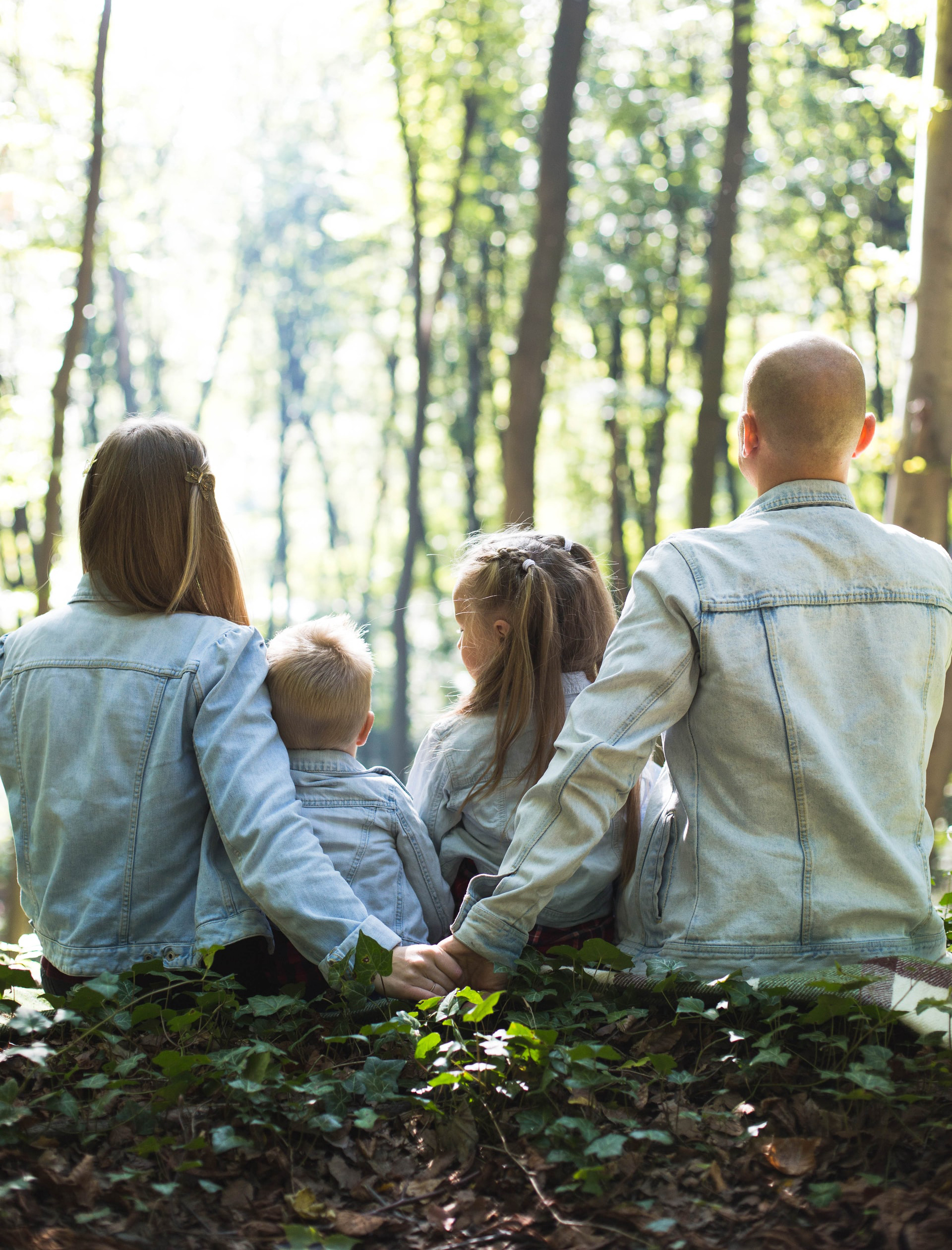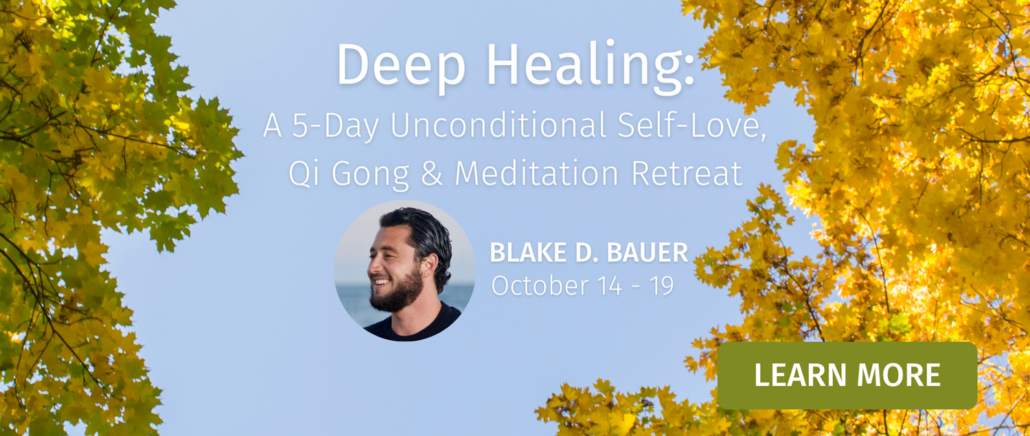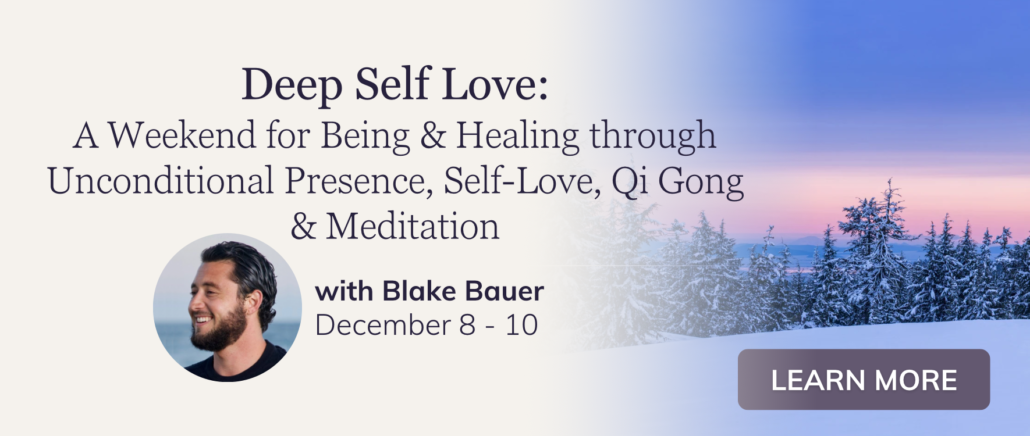Healthy Selfishness
Excerpt from the international bestseller You Were Not Born To Suffer
by Blake D. Bauer
A person who seeks help for a friend, while needy himself, will be answered first.
~The Talmud
The perspective you’ve offered on selfishness versus selflessness is a nuanced one. It prompts us to reconsider these concepts not as binaries but as points on a spectrum of self-care and communal care. The assertion that everyone is inherently selfish can be seen through the lens of psychological egoism, which is the theory that humans are always motivated by self-interest, even in what seems to be acts of altruism.
From an evolutionary standpoint, certain degrees of self-interest are necessary for survival. As you rightly point out, taking care of one’s needs is crucial to be able to offer help or resources to others. In this context, ‘selfishness’ is akin to the self-preservation and self-care necessary for any organism to thrive. It aligns with the adage, “you cannot pour from an empty cup,” suggesting that personal well-being is fundamental to being able to contribute positively to the lives of others.
However, the negative connotation associated with selfishness arises when individual actions harm others or disregard their well-being. The balance between self-care and the care for others is where moral and ethical considerations come into play. Healthy self-interest involves seeking well-being in a way that does not detract from the well-being of others.
Understanding human nature and behavior requires distinguishing between self-care, which is both necessary and positive, and selfishness, which can have a detrimental impact on others. Self-care leads to a more fulfilling and balanced life, often enhancing one’s capacity for generosity and empathy. On the other hand, selfishness typically arises from an excessive preoccupation with one’s own pleasure or advantage, often at the cost of the community’s welfare.
Ideally, individuals should engage in self-care in a way that is mindful and respectful of the needs and well-being of others. Such an approach promotes a nurturing and thriving community environment. This perspective is in line with ancestral views on human health, which advocate for a harmonious balance between personal well-being and the health of the broader community. This balance is key to fostering a healthy, interconnected society where individual and communal needs are both addressed and respected.
Self-care is never a selfish act – it is simply good stewardship of the only gift I have, the gift I was put on earth to offer to others. ~Parker Palmer
Being “healthy selfish” means taking care of yourself so you can be your best for others. Imagine you have a cup full of your energy and happiness. If you keep giving it all away to make others happy, your cup gets empty, and you might feel tired or sad. But if you make sure to keep your cup a bit full for yourself, you can still share a lot with others and feel great!
It’s like when you’re on an airplane, and they tell you to put on your oxygen mask first before helping anyone else. If you can’t breathe, you can’t help anyone else breathe either. So, taking care of yourself isn’t bad or wrong—it’s smart and kind because it means you’ll have more energy and joy to share with your family and friends. It’s all about finding the right balance.

Since anyone who reads this is obviously the child of their parents, please pause for a moment here and ask yourself why your parents conceived you and then birthed you into this world? Was this motivating factor selfish or selfless? If you yourself want to be a parent, are now a parent or have been for years, please also pause to ask yourself why you want children or had children in the first place? If you’re as honest with yourself as possible, have your motives been selfless or selfish?
Whether parenthood was a conscious choice or an accident, it is the best example of selfishness disguised as selfless sacrifice, because men and women always create children from their own desire to do so, even if parenting ends up being different to what they thought it would be. In other words, any person who has a child does so because it’s their dream to have a family, or it’s their intention to parent better than their parents did, or to give a child what they never received. Although rarely admitted, many times a child is an unwanted mistake, for one or both parents, who were simply wanting to have fun, or to enjoy the pleasures of sexual intimacy, or seeking the love, approval or acceptance of the opposite sex. In some cases, a woman or a man doesn’t know what else to do with their life and so having a child seems like a good option, because – why not – everyone else is doing it. Sometimes having a child is a compromise to keep a man, or not to lose a woman, or to become financially secure, or to escape one’s own parents, or to change one’s life, or in some sad cases, an opportunity for a larger benefit payment from the government. In other words, even the most loving, giving and apparently ‘self- sacrificing’ parent is selfish.
The idea you’re exploring here is that acknowledging our natural tendency to put ourselves first isn’t bad—it’s honest and necessary for our well-being. When we’re honest about this, we can take better care of ourselves, which actually lets us help others more effectively. It’s not about being selfish in a way that hurts others but about making sure we’re okay so we can be there for people without feeling drained or expecting something in return.
Many of us try to make others happy as a way of avoiding our own issues, which can lead to feeling unappreciated when the favor isn’t returned. This isn’t truly giving; it’s expecting an exchange, even if we don’t admit it. Learning to meet our own needs is key to breaking this cycle.
Fear holds us back from changing. We’re afraid of how others will react if we start putting ourselves first, even if it’s healthier for us. But by facing these fears and focusing on healthy self-care, we can actually build stronger, more genuine relationships.
So, the best approach seems to be one of balance: caring for ourselves enough that we can offer care to others without losing ourselves in the process. This ‘healthy selfishness’ is about filling our own cup so we can share with others, not giving until we’re empty.
A simple example of this is a partner or parent who never acts for themselves directly, but rather pleases others all the time and puts themselves last or second. This typically results in resentment, frustration and dissatisfaction, and in my experience, eventually leads to depression, relationship problems and various forms of physical illness. Another common example of this is a person who is addicted to drugs or alcohol because they do not know how to address their deeper emotions, needs or desires. Their unhealthy selfish tendency of numbing themselves and avoiding their real wounds then becomes harmful to the people around them. Their toxic inner world overflows and becomes toxic for everyone involved. If, however, they could learn to love and value themselves enough to address their true feelings, they would then want to take better care of their body and their life overall. They would feel they matter and have worth.
The clarification you’ve provided here is essential. “Healthy selfishness” is really about maintaining one’s own well-being without neglecting or dismissing the well-being of others. It’s not about being inconsiderate or unkind; it’s about recognizing that you can’t effectively contribute to the happiness and health of others if you don’t first ensure your own.
When people practice healthy selfishness, they tend to develop a deeper empathy for others, because they understand the importance of meeting personal needs and desires. This perspective helps in respecting others’ needs to do the same. Being “selfish” in this context is not only beneficial to individual growth and happiness but also contributes to a healthier, more understanding society.
Encouraging people to actively pursue what brings them joy and satisfaction is indeed crucial to their well-being and to fostering a more peaceful world. It’s important to note that self-care and personal fulfillment aren’t luxuries; they’re necessities for a balanced and enriching life. Engaging in activities and relationships that bring joy, seeking meaningful work, and aspiring to live fully are not acts of indulgence but of responsibility—to oneself and to the collective well-being of society.
Join Blake for one of his upcoming retreats at Drala Mountain
About Blake D. Bauer








